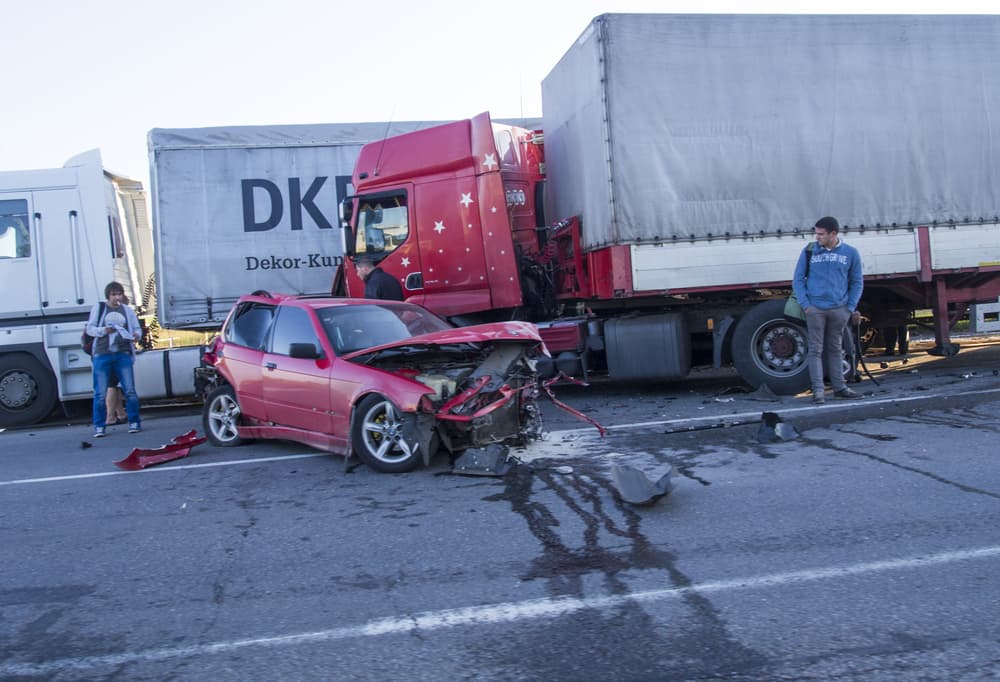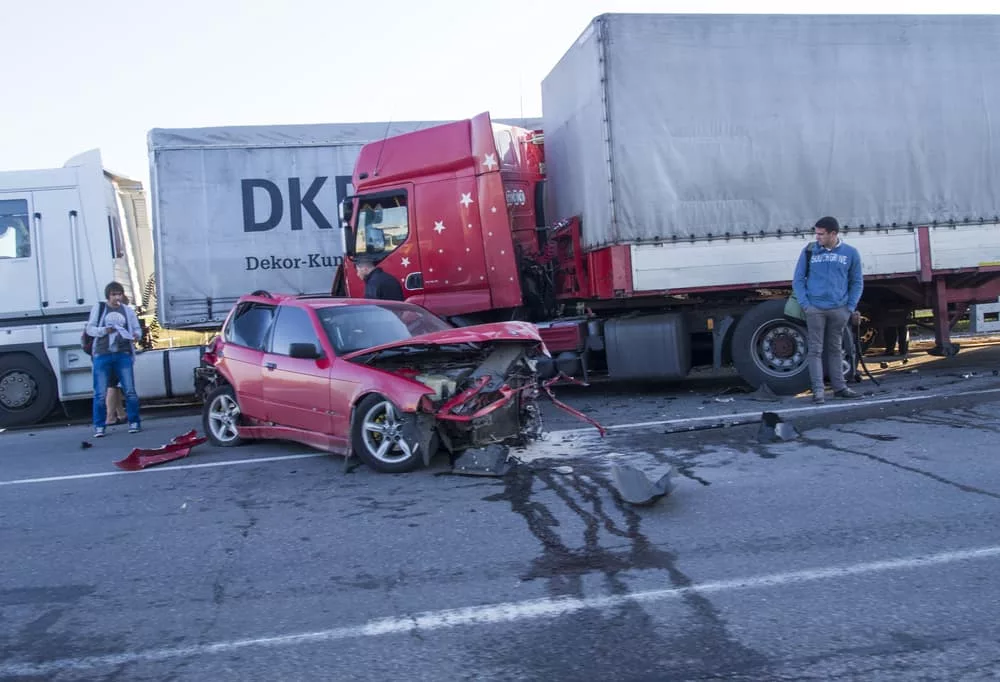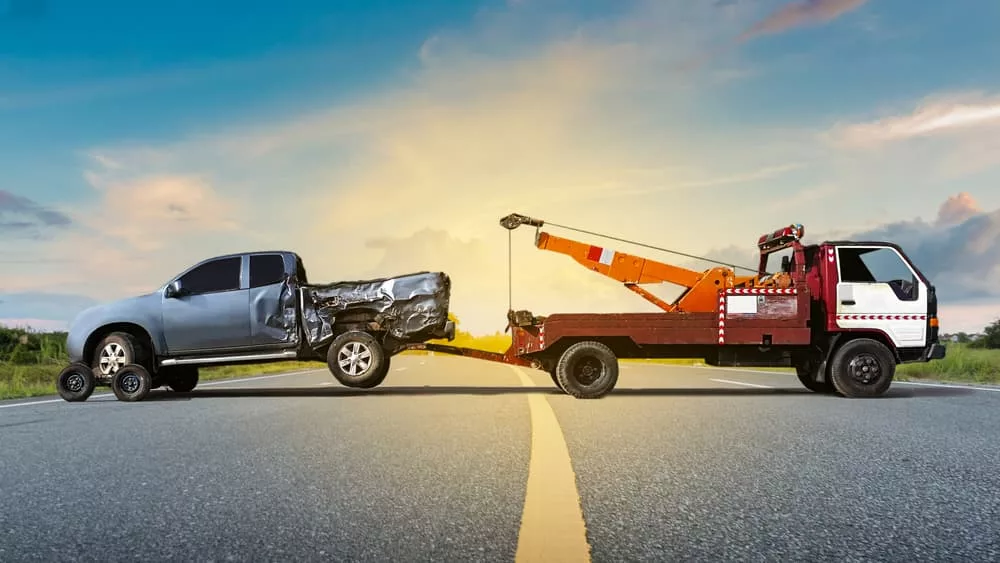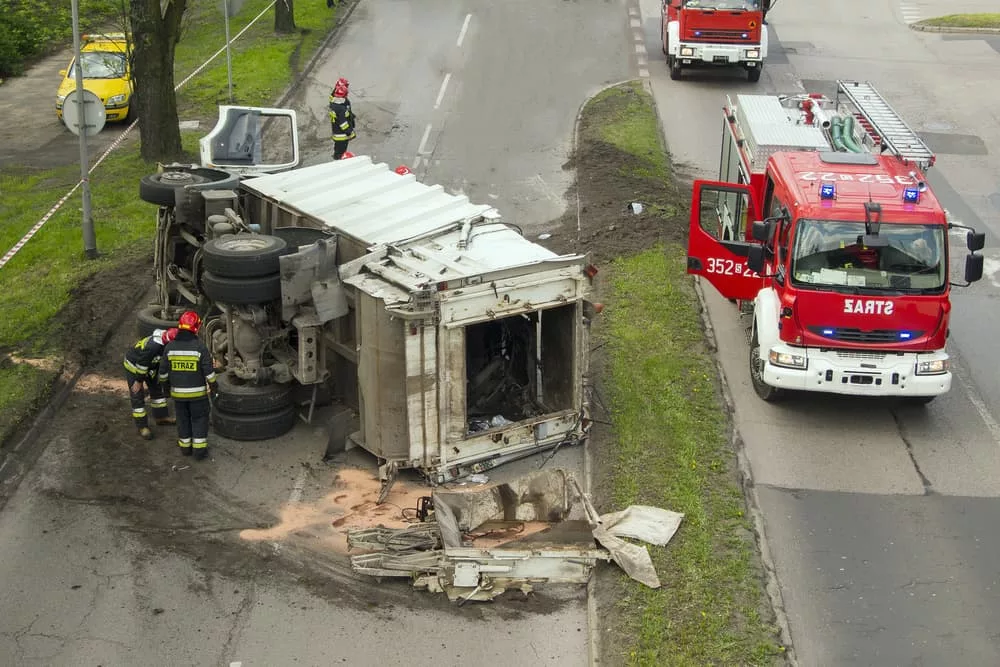When we think of truck accidents, we often imagine driver error, distractions, and fatigue as the primary culprits. Mechanical failure, however, has led to catastrophic collisions involving these large vehicles.
Trucks operate under massive stress, with hefty loads and long travel distances, making their mechanical components susceptible to wear and tear.
A truck accident lawyer who understands the common types of mechanical failures in trucks, their potential consequences, and the responsibilities of trucking companies and drivers to ensure proper maintenance and vehicle safety can lead you through the legal process for seeking compensation.
Schedule a Free Initial Consultation Today!
Causes of Mechanical Failure in Trucks

Manufacturing defects, inadequate maintenance, normal wear and tear, and external factors such as weather and road conditions can cause mechanical failure. These can lead to dangerous accidents resulting in serious injuries and damages. An experienced attorney can investigate the cause of the mechanical failure and establish liability.
Manufacturing Defects
Mechanical failures in trucks may stem from manufacturing defects due to design or production process errors.
Examples of manufacturing defects include:
- Improperly secured components.
- Faulty wiring.
- Weak materials.
These flaws can increase the likelihood of a part breaking down or malfunctioning while the vehicle is in motion. Evidence of manufacturing defects may mean the truck manufacturer is liable for resulting accidents.
Poor Maintenance
Inadequate maintenance often causes truck mechanical failures. Trucking companies and drivers must service and repair their vehicles.
Regular maintenance includes:
- Checking tire pressure and wear.
- Examining brake systems.
- Ensuring all systems function optimally.
Poor maintenance can result in brake failure, tire blowouts, steering issues, and other mechanical problems, which may lead to dangerous accidents.
Normal Wear and Tear
Trucks experience regular wear and tear due to harsh conditions and the heavy loads they bear. Even with proper maintenance, components might eventually break down and require replacement or repair. These failures may include worn-out brake components, transmission system issues, or suspension problems. Identifying and addressing normal wear and tear can prevent mechanical failure accidents.
External Factors
Trucks frequently encounter various hazardous external elements, such as extreme weather conditions and rough roads. These factors can contribute to mechanical failure if they cause undue stress on the vehicle’s components. Driving on icy roads, for example, may strain brakes and compromise their effectiveness, and poor road conditions increase the likelihood of tire blowouts.
Parties in Truck Accidents Involving Mechanical Failure
Involved parties in cases concerning mechanical failures include the driver, the trucking company, the manufacturer, and the maintenance company.
You can hold the trucking company and the driver liable if they fail to provide proper maintenance or ignore reports of mechanical problems. You can hold the truck manufacturer liable for any defects in the design or production. And if a third-party maintenance company serviced and repaired the truck, you can hold them negligent if they failed to perform their work adequately.
Each involved party in a truck accident resulting from mechanical failure owes a legal duty of care to others. Truck drivers and trucking companies are responsible for maintaining their vehicles and ensuring their safe operation. Manufacturers must provide vehicles free of defects and meet industry standards. Maintenance companies must perform their work correctly and address any issues they identify.
If you are the victim in a truck accident that involves mechanical failure, you and your attorney must establish that the responsible party breached their duty of care and demonstrate that this breach directly led to your injuries and damages.
Injuries and Damages
Injuries sustained in truck mechanical failure accidents can include:
- Broken bones.
- Lacerations.
- Traumatic brain injuries.
- Spinal cord injuries.
- Internal organ damage.
These injuries can lead to significant medical expenses, lost earnings, and emotional trauma for the victim and their family.
To recover damages in this type of case, you and your attorney must prove your injuries and the resulting expenses.
This requires you to:
- Seek medical attention: Prompt medical evaluation creates an important medical paper trail even if you don’t have immediately apparent injuries. Follow your healthcare provider’s recommended treatment plan, and keep records of all medical visits, diagnoses, treatments, medications, and other relevant medical information.
- Preserve evidence: This includes photographs of the accident scene, damaged property, visible injuries, or any relevant objects or conditions that may have contributed to the accident. Record any correspondence with the other party, witnesses, or insurance companies, such as emails or text messages.
- Obtain witness statements: If there were witnesses to the truck accident, try to obtain their contact information and statements of their observations. Their testimonies support your claim by corroborating your version of events and the resulting injuries.
- Document symptoms and progress: Keep a detailed record of your symptoms, pain levels, and any changes or improvement in your condition. Note any limitations or difficulties you experience in your daily activities due to the injuries. This documentation demonstrates the effect of the injuries on your everyday life and overall well-being.
- Gather medical records and expert opinions: This includes doctor’s reports, diagnostic test results, surgical notes, and rehabilitation records. These documents evidence your injuries, treatment, and recovery process. Your lawyer may consult with medical experts who can provide professional opinions and testimony about your injuries’ cause, nature, and long-term effects.
- Keep a log of your expenses: Record all financial losses and costs associated with your injuries. This could include transportation, assistive devices, and other out-of-pocket expenses incurred due to the accident and subsequent injuries.
The specific requirements and procedures for proving injuries in a truck accident claim can vary depending on the jurisdiction and the type of claim. Working with a knowledgeable attorney will ensure you follow the appropriate legal steps and present a compelling case to seek the compensation you deserve.
The Degree of Fault
In some accidents involving mechanical failure, multiple parties are responsible. Some state laws establish a comparative negligence rule in this instance. Under this rule, your actions before, during, and after the accident can influence the amount of recoverable damages. Every state is different, and many do not observe this rule. Your lawyer can explain whether this will influence your claim.
Compliance With Regulations
Knowing the applicable federal and state regulations regarding truck maintenance, inspections, and driver qualifications can help prove negligence in mechanical failure cases.
If a party fails to comply with these regulations, it may be evidence that their negligence directly contributed to the accident and your injuries.
An experienced attorney can investigate whether the truck driver, trucking company, or maintenance provider failed to comply with Federal Motor Carrier Safety Regulations (FMCSR) and state regulations, which could strengthen your case.
FMCSRs
FMCSR sets guidelines for truck maintenance, inspections, and driver qualifications to ensure the safety of commercial vehicles on the road. Compliance with these regulations is crucial in proving negligence in a mechanical failure accident.
State Regulations
Truck drivers and trucking companies must comply with applicable state vehicle maintenance and safety regulations in addition to FMCSR. All states have specific rules to ensure the safety of commercial vehicles on the road.
Regulations include:
- Mandatory commercial vehicle inspection programs.
- Truck driver qualification requirements.
- Vehicle maintenance and repair obligations.
Some state regulations, for example, direct all owners and drivers of commercial motor vehicles to adhere to the federal regulations regarding inspections, repairs, and maintenance in 49 CFR 396.3.
Non-Compliance as Evidence of Negligence
Non-compliance with federal and state regulations can be evidence of negligence in mechanical failure cases. If the at-fault party failed to comply with these directives, their negligence contributed to the mechanical failure and your injuries.
Maintenance and Inspection Records
Obtaining maintenance and inspection records helps to establish liability in this type of case. These records provide valuable information about the truck’s history, previous repairs, and any known issues that might have contributed to the accident. An experienced attorney can acquire these records and use them to build a strong case against the at-fault party.
Maintenance and inspection records help establish liability by revealing patterns of neglect, inadequate maintenance, or failure to address known issues. If records show that the trucking company consistently failed to perform routine maintenance or ignored reported problems with the vehicle, for example, this evidence can demonstrate the company’s negligence to maintain a safe vehicle.
Expert Testimony
Expert witnesses play a crucial role in truck mechanical failure cases. They provide valuable insights into the cause of the failure, the responsible party’s negligence, and the resulting damages. Their expertise can help a jury understand the technical aspects of the case and assist in making an informed decision regarding liability and compensation.
Various expert witnesses could provide information in a mechanical failure case depending on the circumstances. Accident reconstructionists might analyze the crash scene and determine the sequence of events leading to the accident. Mechanical engineers may assess faulty components and identify manufacturing defects, maintenance issues, or other factors contributing to the failure.
Evidence of Damages
You must provide evidence to receive fair compensation when you suffer injuries in a truck accident involving mechanical failure. Documentation such as medical records, bills, photos, and expert testimony can demonstrate the severity of your injuries and determine the amount of damages you are eligible to receive.
Medical Records
Medical records are essential in proving your injuries and the resulting damages. These documents detail the injuries sustained, the treatments administered, and the expenses incurred due to the accident. An attorney can gather the necessary information to demonstrate the extent of your injuries and the associated costs.
Lost Earnings
Lost income is a significant component of damages in a truck mechanical failure case. The inability to work due to injuries can result in substantial financial losses. Documentation of your income before the accident and any promotions or raises you were on track to receive can help establish the extent of these damages.
Pain and Suffering
Pain and suffering damages account for the emotional and physical distress experienced as a result of the accident. To substantiate these claims, you must provide documentation of ongoing medical treatments, therapy sessions, prescription medications, and any other measures to alleviate your pain and suffering.
Statute of Limitations
The statute of limitations is a legal deadline within which you and your attorney must file a lawsuit to seek compensation for your injuries. If you do not file within the specified time frame, you may lose your right to pursue legal action and recover damages.
The statute of limitations varies between states and generally ranges from one to four years from the date of the accident. This limitation means you must file a lawsuit within this timeframe to recover damages for your injuries. Failure to do so may forfeit your right to pursue compensation.
An Attorney Can Handle Truck Mechanical Failure Accident Cases

Individuals involved in a truck accident should understand the legal aspects of mechanical failures. Your attorney will identify the cause of the failure and the responsible party, provide evidence of your injuries and damages, and navigate the complexities of a personal injury lawsuit to seek fair compensation for your losses.
If you or a loved one suffered injuries in a truck accident involving mechanical failure, seek legal advice from an experienced personal injury attorney. They can guide you through the legal process, gather evidence, and advocate for your rights and the best possible outcome for your case.





